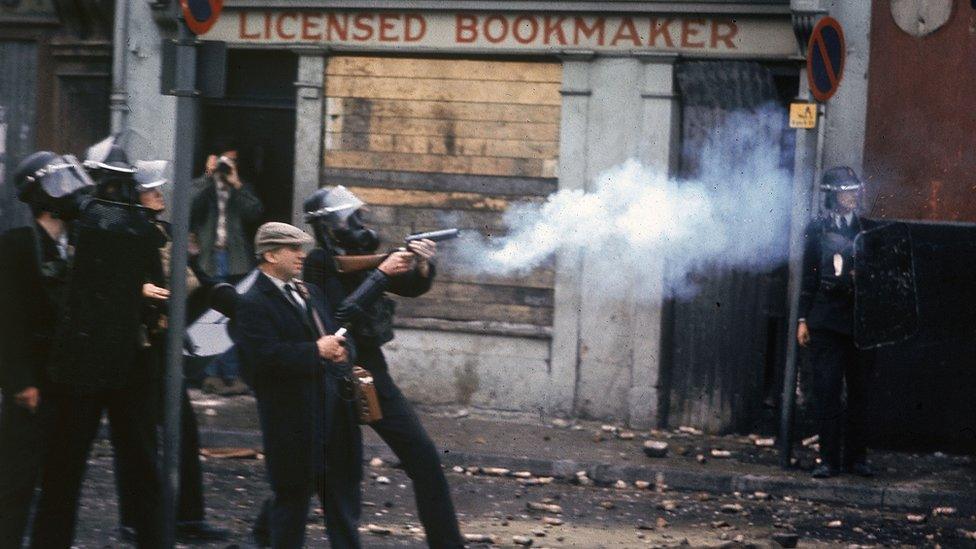Loyalists on the Troubles: 'Better to die on your feet'
- Published
Loyalist paramilitaries killed more than 1,000 people during the Troubles
There was a hand-painted sign that loyalist prisoners put up in jail to try to boost morale.
It read: "Better to die on your feet, than to live on your knees in an Irish Republic."
To them, it was the reason for their militant loyalism. To many others, it was simply an excuse for 25 years of sectarian killings.
The 50th anniversary of the outbreak of violence in Northern Ireland in August 1969 has prompted a period of reflection on all sides.
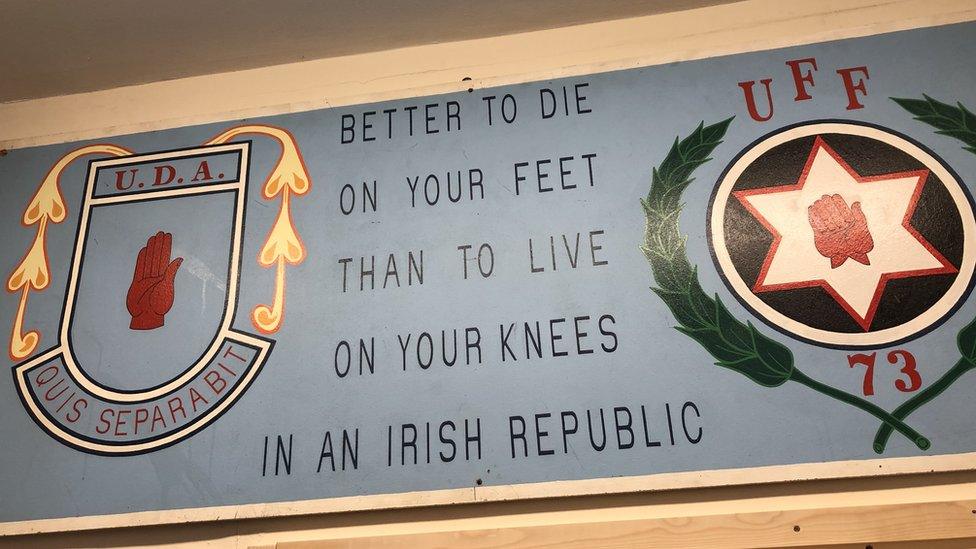
Loyalists killed more than 1,000 people between 1969 and 1994.
Many of them were Catholics, shot for no other reason than their religion.
"The basis of the UVF was that the only way to get rid of the IRA was to attack the Catholic community," admits former Ulster Volunteer Force (UVF) prisoner Billy Hutchinson.
"That didn't work, and as the years went on, and the conflict grew, people had to use a different tack."
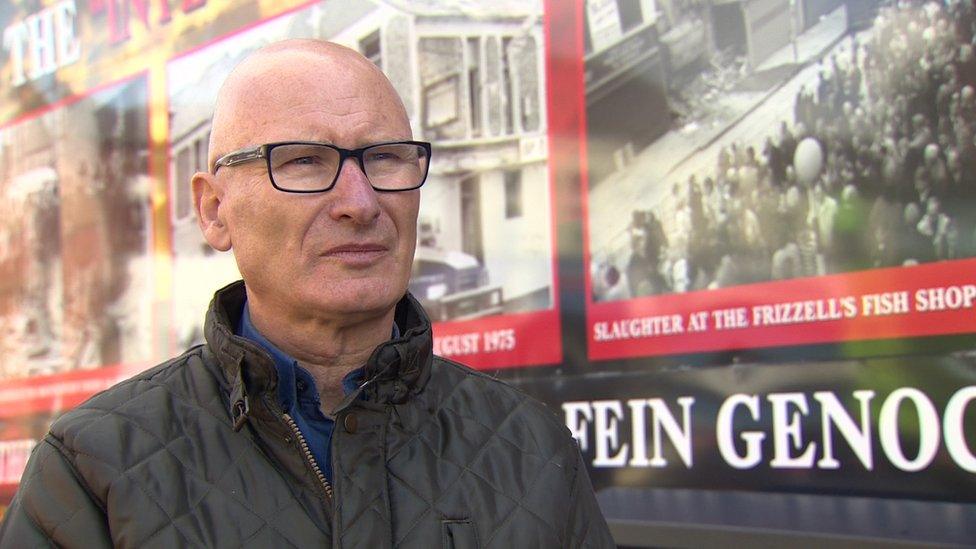
Former UVF prisoner Billy Hutchinson was part of the loyalist political grouping which helped to negotiate the Good Friday Agreement in 1998
The UVF was formed in 1966 to combat what it saw as a rise in Irish republicanism following the 50th anniversary of the 1916 Easter Rising.
That year, it shot dead Catholic barman Peter Ward, 18, from west Belfast. He was killed near the Shankill Road.
The UVF adopted the name and symbols of the original UVF, the movement founded in 1913 to fight against Home Rule.
Veteran journalist and broadcaster Peter Taylor says: "When the Troubles erupted in 1968/69 when the Army came in, the UVF was there on a very small scale, but what really transformed loyalism or loyalist paramilitarism was the IRA.
The roots of Northern Ireland’s Troubles lie deep in Irish history
"In the end it was the IRA that helped create the loyalist paramilitaries."
The other main loyalist group was the Ulster Defence Association (UDA). It emerged in 1971 out of loyalist vigilante groups that were set up as trouble flared between rival communities.
Peter Taylor watched the UDA become more and more violent.
"In 1972, I filmed the embryo UDA, training in Willowfield in east Belfast, sealing off the area, setting up their own 'no-go' area," he says.
"I never dreamt at that time that these men I was interviewing, or their organisation, would in the fullness of time turn out to be some of the most vicious, nasty, sectarian, killers, murderers in the history of the conflict."
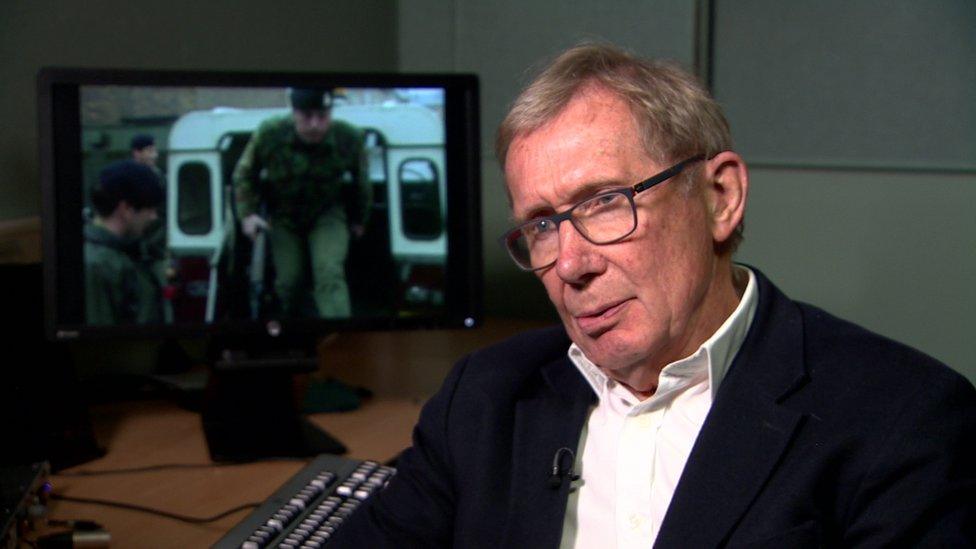
Veteran journalist Peter Taylor covered the Troubles
When carrying out attacks, the UDA used the cover name Ulster Freedom Fighters (UFF).
Rather than trying to stop loyalists, some elements of the security forces colluded with them.
Many of the leading loyalist figures from the 1970s, 1980s and 1990s are now dead.
Billy Hutchinson is one of the few high-profile loyalists still prepared to talk openly about the past.
"I got involved because my community was being attacked by the IRA and nobody was defending it," he said
In the late 1960s and early 1970s, hardline unionist leaders like the Rev Ian Paisley were accused of inflaming a volatile situation with anti-Catholic rhetoric.
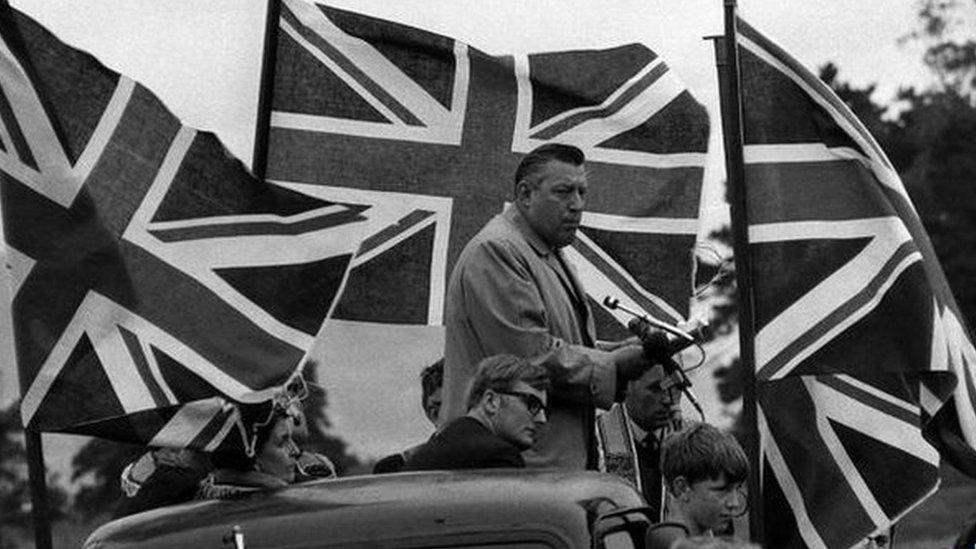
Ian Paisley pictured on 11 July 1970
Hutchinson said the Rev Paisley had no influence on him.
"I was warned off whenever I was a child by my father who told me: 'That's the sort of man who would fight to the last drop of your blood, but not his own.'"
Hutchinson served 16 years of a life sentence for his involvement in the murder of two Catholics.
"I've tried to live my life whereby I don't have regrets," he said.
"Obviously I regret every murder that happened in the Troubles. It shouldn't have happened. But it did."

You may also be interested in:

Hutchinson was part of the loyalist political grouping which helped to negotiate the Good Friday Agreement in 1998.
He is now a Progressive Unionist Party member of Belfast City Council and is regularly involved in meetings with Sinn Féin.
Although the UVF and UDA called a ceasefire in 1994 and later decommissioned weapons, loyalist paramilitary groups still exist.
They have continued to kill, mainly each other, in feuds between rival factions.
Watch more: Explore BBC archive film footage showing what led to the deployment of British troops in August 1969, external.
- Published14 August 2019
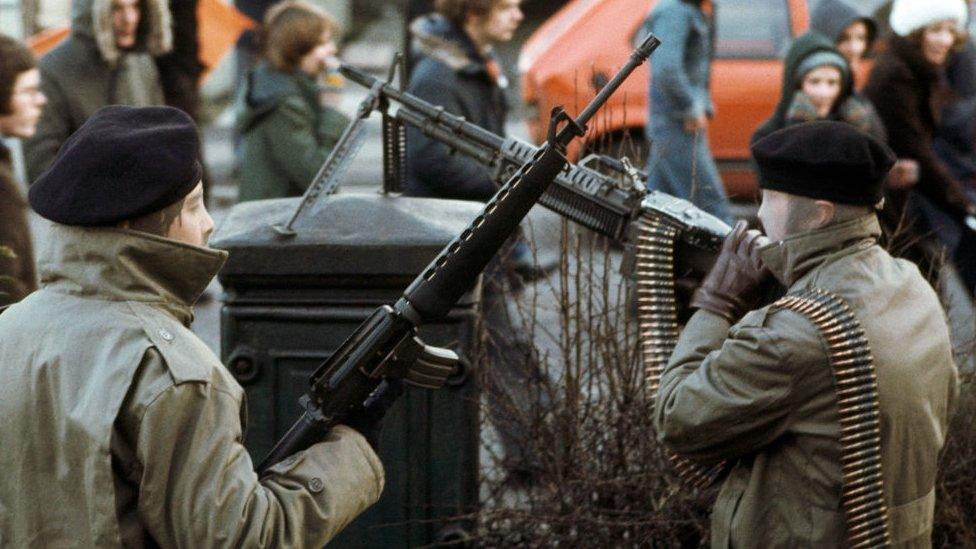
- Published13 August 2019
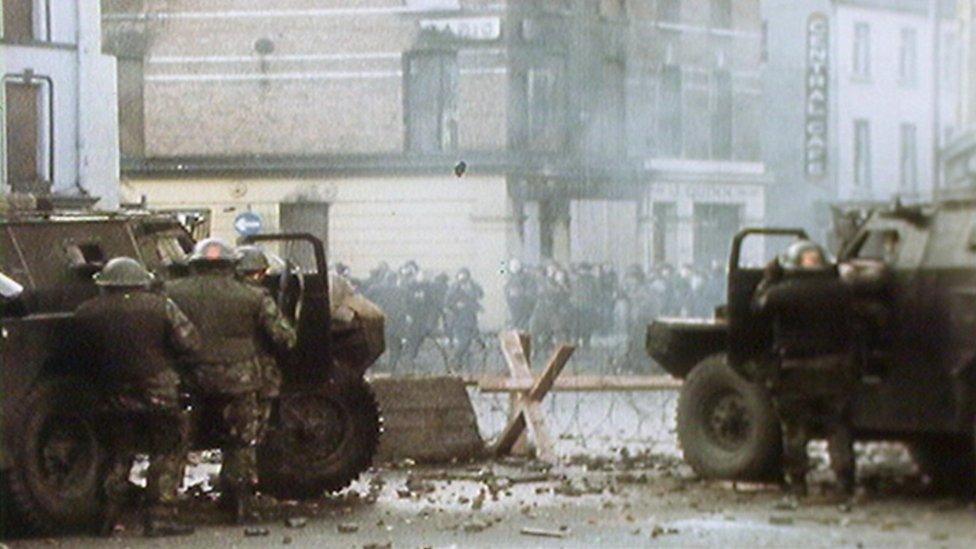
- Published12 August 2019
